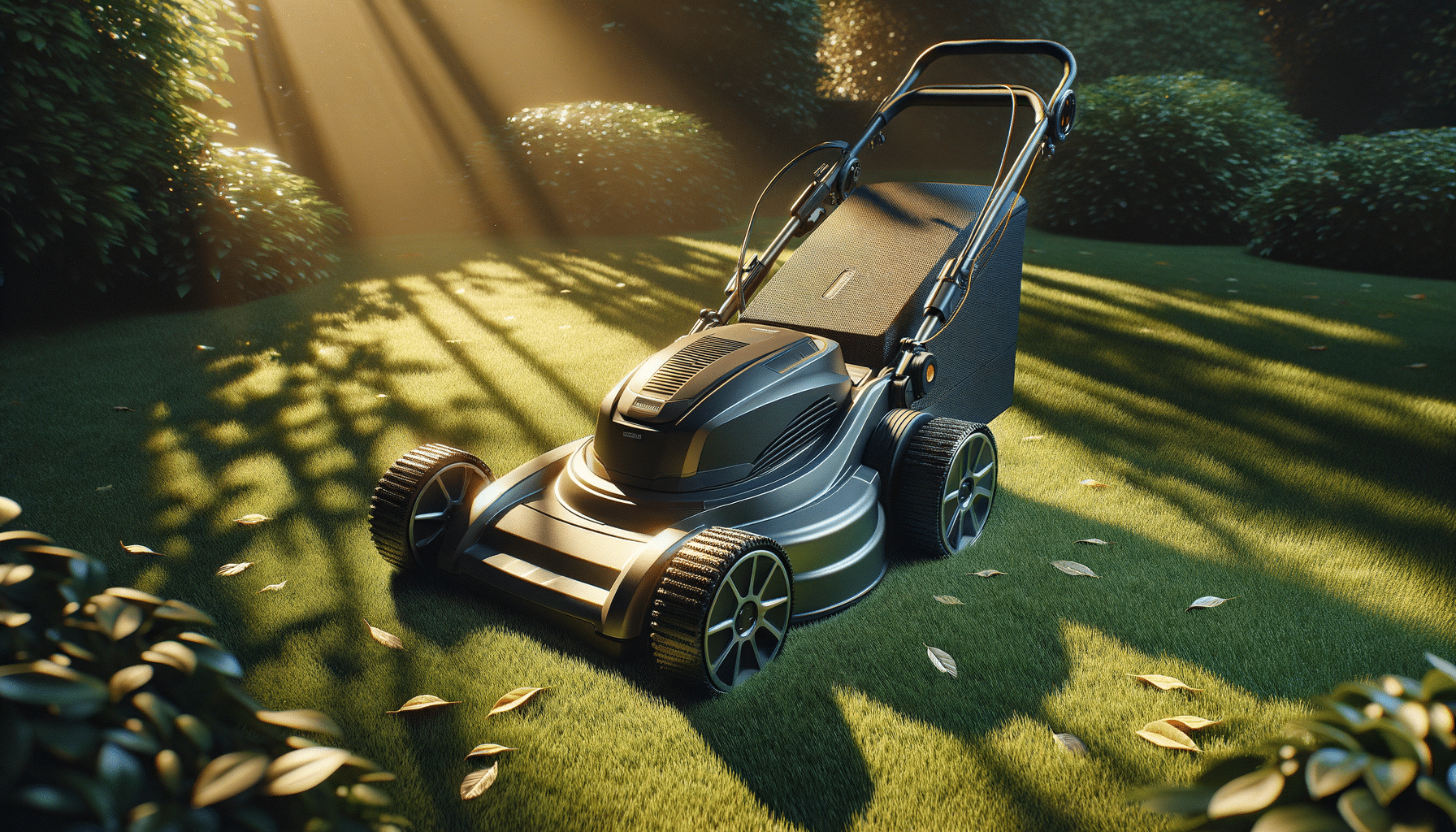
Lawn mower
The Evolution of Lawn Mowers
Lawn mowers have come a long way since their inception in the early 19th century. Originally invented by Edwin Budding in 1830, the first lawn mowers were simple push models that revolutionized the way grass was maintained. Over time, technological advancements introduced motorized versions, making lawn care more efficient and less labor-intensive. Today, lawn mowers are available in various types, including gas-powered, electric, and robotic models, each catering to different needs and preferences.
The evolution of lawn mowers reflects broader trends in technology and consumer demand for convenience. Early mowers required significant physical effort, but modern designs prioritize ease of use and efficiency. For instance, robotic lawn mowers can autonomously maintain a lawn, requiring minimal human intervention. This shift towards automation and smart technology is indicative of a broader trend in home and garden tools.
As environmental concerns grow, there’s also a noticeable shift towards electric and battery-powered mowers, which offer a quieter and more eco-friendly alternative to traditional gas-powered models. Homeowners are increasingly aware of their carbon footprint, and lawn mower manufacturers are responding by developing greener, more sustainable products.
Types of Lawn Mowers and Their Uses
Choosing the right lawn mower depends largely on the size and terrain of your lawn, as well as personal preferences. Here’s a breakdown of the main types of lawn mowers available:
- Push Mowers: Ideal for small to medium-sized lawns, these mowers are powered by the user’s physical effort. They are cost-effective and environmentally friendly, as they don’t rely on fuel or electricity.
- Self-Propelled Mowers: Suitable for larger lawns, these mowers have a transmission that drives the wheels, making them easier to maneuver. They are available in both gas and electric models.
- Riding Mowers: Best for extensive lawns, riding mowers offer comfort and efficiency. They come in various sizes and can be equipped with attachments for additional tasks, such as mulching or snow removal.
- Robotic Mowers: These autonomous mowers are perfect for tech-savvy homeowners who prefer a hands-off approach. They require initial setup but can maintain the lawn independently thereafter.
- Zero-Turn Mowers: Known for their maneuverability, these mowers are popular for professional landscaping due to their ability to turn on a dime, making them ideal for complex lawns with obstacles.
Each type of mower has its own set of advantages and disadvantages, making it crucial to assess your specific lawn care needs before making a purchase.
Maintenance Tips for Longevity
Proper maintenance is key to ensuring the longevity and performance of your lawn mower. Regular upkeep not only extends the life of the machine but also ensures optimal cutting performance. Here are some essential maintenance tips:
- Regular Cleaning: After each use, clean the mower to remove grass clippings and debris. This prevents buildup that can lead to rust and other issues.
- Blade Sharpening: Sharp blades are crucial for a clean cut. Dull blades can tear grass, leading to a ragged appearance and potential disease. Sharpen the blades at least once a season.
- Oil Changes: For gas-powered mowers, regular oil changes are necessary to keep the engine running smoothly. Check the owner’s manual for specific guidelines.
- Air Filter Replacement: A clean air filter ensures efficient engine performance. Replace or clean the filter regularly to prevent clogging.
- Battery Care: For electric and battery-powered models, ensure the battery is charged and stored correctly to maintain its lifespan.
By following these maintenance tips, you can enhance the durability and efficiency of your lawn mower, ensuring it serves you well for years to come.
Environmental Impact and Sustainability
The environmental impact of lawn mowers is a growing concern, particularly with gas-powered models that emit pollutants. As awareness of climate change and sustainability increases, many homeowners are considering more eco-friendly options.
Electric and battery-powered lawn mowers offer a cleaner alternative, producing no direct emissions and reducing noise pollution. These models are particularly beneficial in urban areas where noise restrictions may be in place. Furthermore, advancements in battery technology have improved the performance and runtime of these mowers, making them a viable option for larger lawns.
Another sustainable practice is the use of mulching mowers, which cut grass into fine clippings that decompose quickly, returning nutrients to the soil. This reduces the need for chemical fertilizers and promotes a healthier lawn ecosystem.
Manufacturers are also exploring the use of biodegradable materials and recyclable components in mower design, further reducing the environmental footprint. By choosing eco-friendly lawn mowers and sustainable lawn care practices, homeowners can contribute to a healthier planet.
The Future of Lawn Mower Technology
The future of lawn mower technology is poised to be even more innovative and user-friendly. With the integration of artificial intelligence and smart technology, the next generation of lawn mowers will offer enhanced automation and connectivity.
Smart mowers equipped with sensors and GPS can map your lawn, optimizing mowing patterns and avoiding obstacles. Some models can even be controlled via smartphone apps, allowing users to set schedules and monitor progress remotely. This level of convenience is ideal for busy homeowners who want a well-maintained lawn without the time commitment.
In addition to smart features, future lawn mowers are likely to incorporate more sustainable technologies. Solar-powered mowers are already in development, harnessing renewable energy to operate. As battery technology continues to advance, we can expect longer runtimes and faster charging capabilities.
Overall, the lawn mower industry is moving towards greater efficiency, sustainability, and ease of use. These innovations promise to make lawn care more accessible and environmentally responsible for homeowners around the world.


